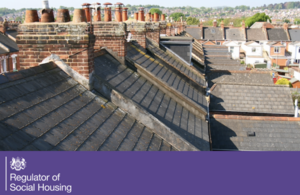Social housing sector stock and rents statistics show impact of pandemic
RSH has published its annual social housing sector stock and rents statistics.

The Regulator of Social Housing today published statistics about the social housing sector for both private and local authority registered providers, including stock ownership and rents as at 31 March 2021.
Returns from all registered providers of social housing show the sector provides 4.4 million homes across England with around a 25,000 net increase in social homes in the year. The number of Affordable Rent and low-cost home ownership homes increased, while the number of social rent homes fell. General needs (social rent) homes still make up the majority of the social housing sector at 77% of all stock, with supported housing at 13% and low cost home ownership at 7%.
The coronavirus pandemic impacted on registered providers in a variety of ways. The measures in place to protect tenants led to a dramatic fall in evictions by private registered providers from over 10,000 to fewer than 800. The pandemic also affected stock changes. In 2021, private registered providers once again increased the number of low cost rental homes they offered. However, this was the smallest annual increase since 2014. Local authority providers saw another decline in the number of low cost rental homes. However, this was the smallest annual decrease since 2012. Both private and local authority providers continued to develop and acquire homes, with nearly 25,000 low cost rental homes and 14,000 low cost home ownership homes joining the stock.
For profit providers continue to increase their stock, with more than 4,000 homes added in the year. About three-quarters of this growth has been in low cost home ownership. However, stock held by for-profit providers is a very small (0.5%) proportion of overall stock.
As expected, rents increased in the year. The average increase in general needs (social rent) weekly net rents was 2.7%, which was in line with the cap of CPI+1%. This increase follows falls in rent across the sector over the previous four years. The average weekly general needs rent across England was £92.84 with continued regional variation. Rents were lowest in the North East (£77.67) and highest in London (£114.44).
Will Perry, Director of Strategy at RSH said:
The data from this year’s Statistical Data Return and Local Authority Data Return show the impact of the coronavirus pandemic on evictions and stock changes, as well as the increase in rents in line with the limit set by government.
Collecting this data supports us in taking a risk-based and proportionate approach to regulation, across both local authority and private registered providers, and makes a valuable contribution to National Statistics.
Further information
For press office contact details, see the Media enquiries page.
For general queries, please email enquiries@rsh.gov.uk or call 0300 124 5225.
Notes to editors
- Local authority social housing data was formerly collected through the Local Authority Housing Survey. Since 1 April 2020 it has been collected by RSH through the Local Authority Data Return when RSH took on responsibility for the regulation of local authority rents. Private registered provider data has been collected by RSH through the Statistical Data Return since 2012.
- Both local authority and private registered provider data are designated as National Statistics by the UK Statistics Authority.
- A total of 1,557 providers completed either the LADR or the SDR in 2021. There was a response rate of 100% for the 2020-21 LADR and 95% for the 2020-21 SDR (100% for private registered providers owning 1,000 or more social housing units).
- Homes includes self-contained units such as houses and flats and non-self-contained bed spaces, referred to collectively as units in the data.
- Of the 4.4m units of social stock owned by RPs, private registered providers own 2.8m units while local authority registered providers own 1.6m units.
- The 51 for-profit providers reported 13,671 units of social stock in 2020, compared to 9,313 in 2019.
- The Welfare Reform and Work Act 2016 introduced a 1% annual rent reduction for four years. Rents from 1 April 2020 are regulated through RSH’s rent standard with a rent cap of CPI + 1%.
- RSH promotes a viable, efficient and well-governed social housing sector able to deliver homes that meet a range of needs.